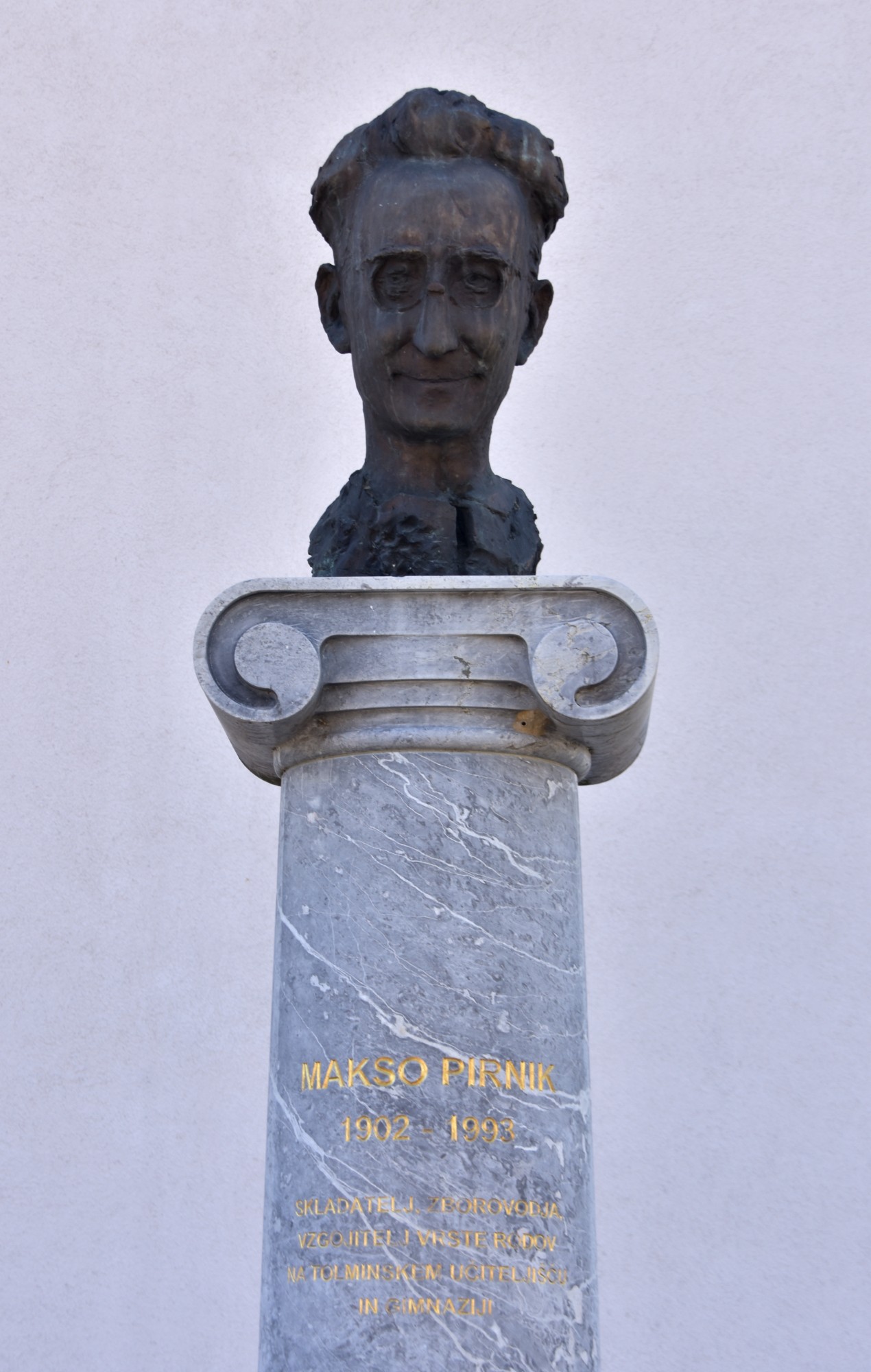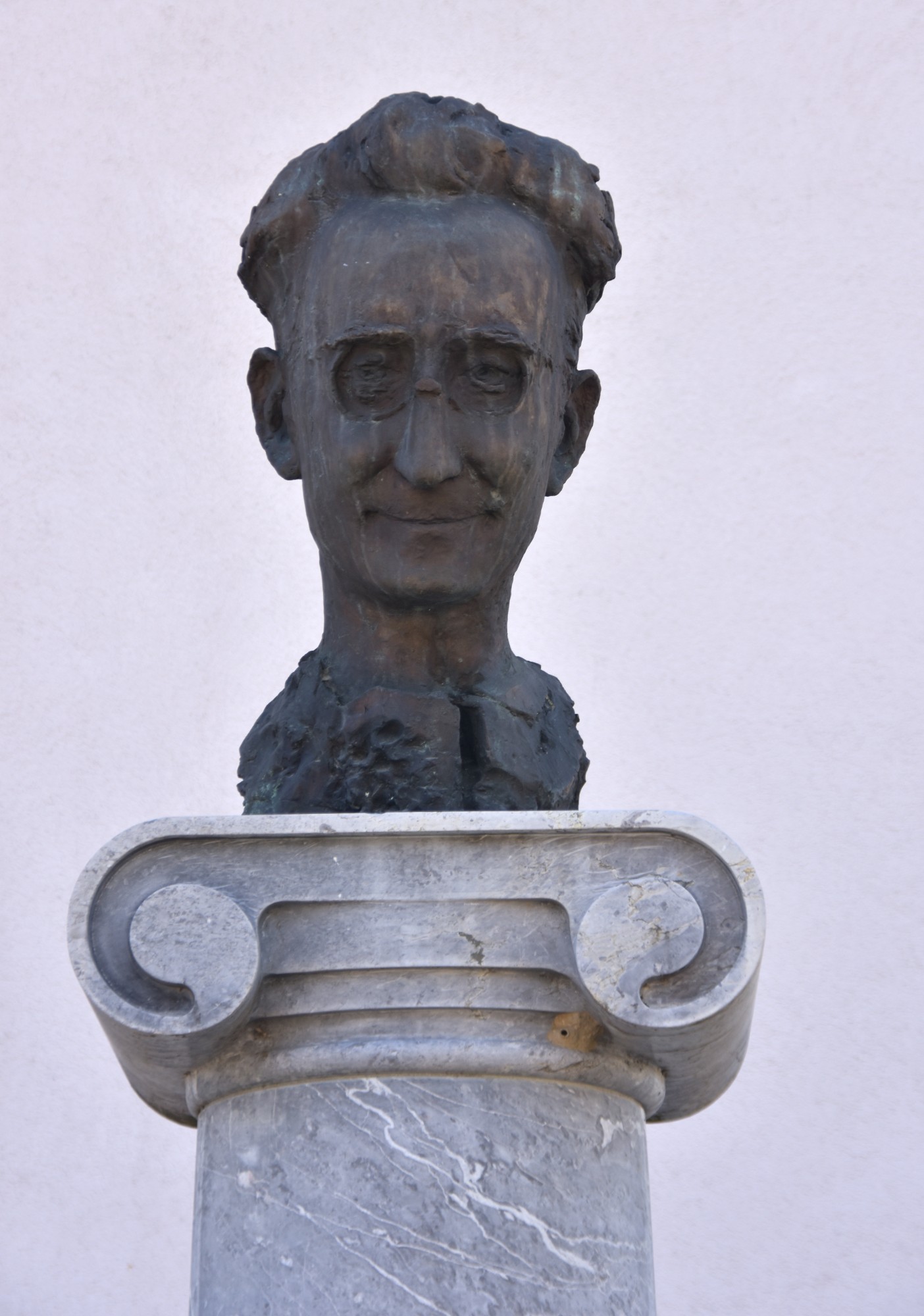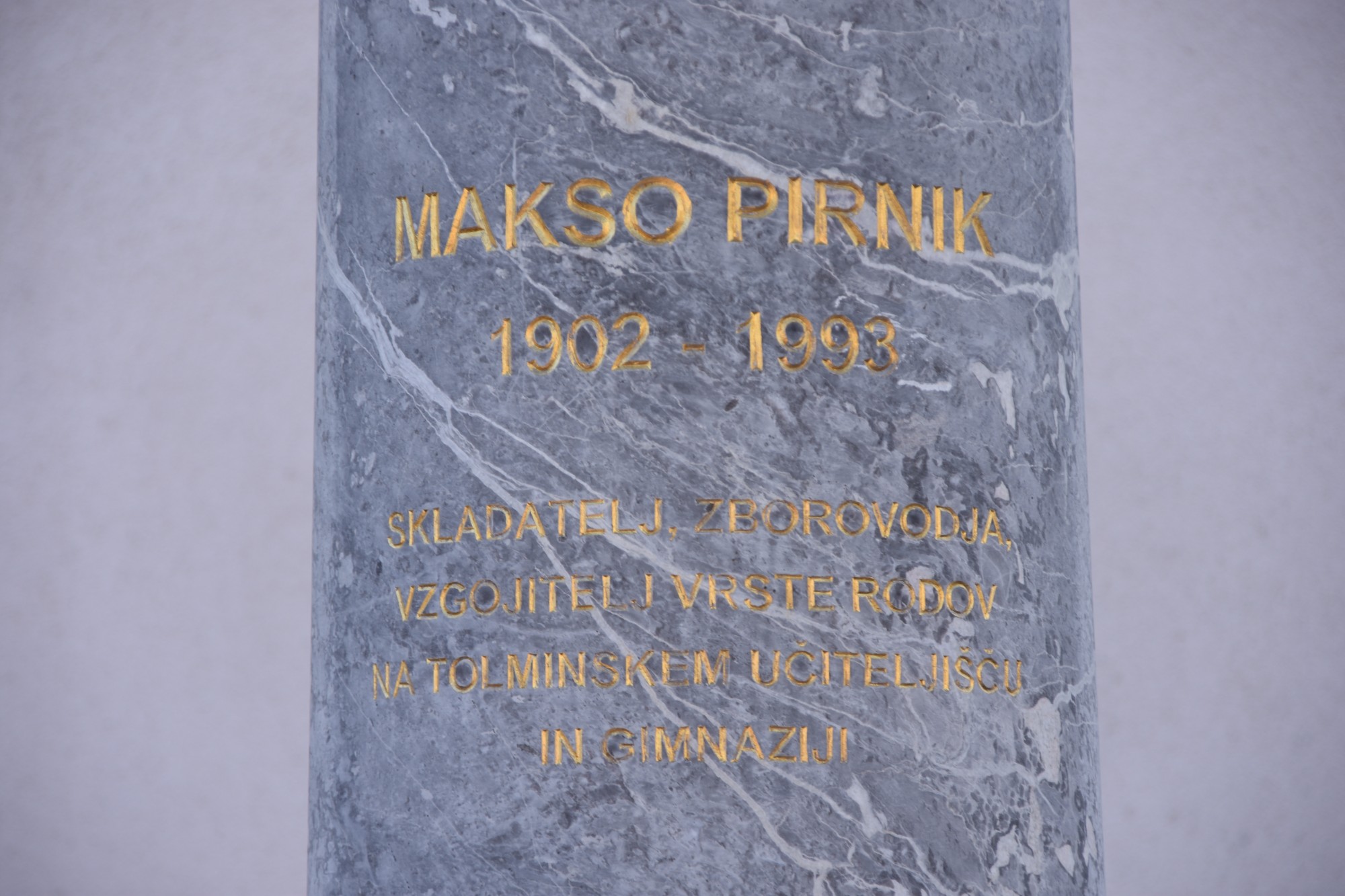In 2015, the Tolmin Museum and the Municipality of Tolmin had a bronze bust erected to commemorate the centennial of the composer’s birth. The memorial, located in front of the Tolmin Music School, was made by Mirsad Begić. The statue had previously stood (from 2002) in Tolmin Town Square (Mestni trg). The inscription reads:
“Makso Pirnik
1902–1993
Composer, choirmaster,
teacher to a number of generations
at Tolmin Teacher Training College
and Grammar School.”
Makso Pirnik
Makso Pirnik (1902–1993) was a composer, music educator and choirmaster, who channelled his music endeavours into youth singing and folk song.
Pirnik was born in Slovenske Konjice and attended primary school in Prihovo. He first received music tuition as a young boy at the organ school in Celje, and then between 1923 and 1927 at Maribor Teacher Training College. He developed an interest in choral music in the choir of the Glasbena matica Music Society Maribor, during which time he also started to compose short vocal pieces. He initially modelled his works after those of composers Oskar Dev, Vasilij Mirk and Ubald Vrabec, who wrote mainly vocal music.
He later attended Ljubljana Conservatory of Music, studying solo singing, piano and conducting. In 1933, he took additional subjects, courses in harmony and counterpoint with Professor Slavko Osterc. After graduation, he applied himself mainly to conducting choirs, gaining distinction as the choirmaster of Litija Youth Choir. In 1936, on his initiative, the Society of Youth Choir Conductors was established in Slovenske Konjice.
He resumed his educational work aimed at cultivating youth choral music during the national liberation struggle, becoming promoter and head of the choral activities in Primorska after the surrender of Italy. Joining the partisan resistance forces during the war, he took on special cultural-propaganda tasks together with musicians and composers who include Rado Simoniti, Franc Šturm, musicologist Dragotin Cvetko, and singers Bogdana and Nada Stritar. Over this period, he composed his best-known song, Smrt v Brdih (Death in Brda), which became part of the national folk-song repertoire.
His body of work primarily features compositions for children’s and youth choirs, as well as distinctive arrangements of folk songs, including Njega ni, Veseli pastir and Jaz bi rad vedel (He Is Gone, Merry Shepherd, I’d Like to Know). In composing his own output, Pirnik often set to music poems by Karel Destovnik-Kajuh, Srečko Kosovel and Simon Gregorčič. Musicologist Dragotin Cvetko places him alongside Peter Lipar and Radoslav Hrovatin, composers who, similarly to Pirnik, grounded their musical creativity on Slovenian folk-song tradition.
Maia Juvanc



